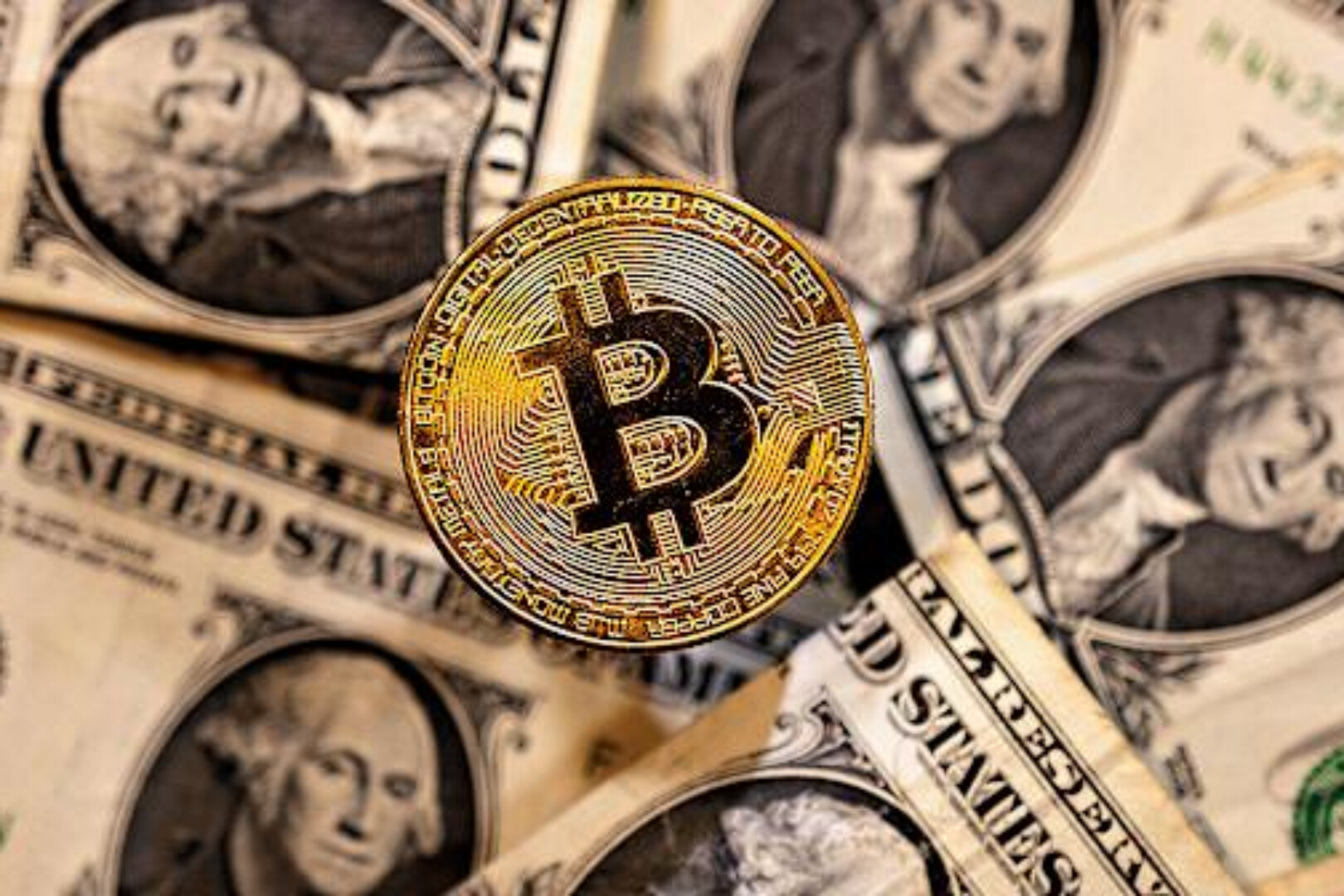Original author: Runsheng, ChainCatcher
In the face of Web3, FOMO has always been the norm. Especially in the cycle of global economic downturn, this is becoming more and more obvious, no matter whether it is an individual or a government. Seeing the influx of Chinese Web3 entrepreneurs into neighboring Singapore, Hong Kong seems to have fallen into FOMO recently.
On October 17, according to Hong Kong Financial Secretary Chen Maobo, Hong Kong will hold a financial technology week from October 31 to November 4. At that time, the SAR government will issue a policy declaration on the development of virtual assets in Hong Kong. And strategy, regulatory system, attitude towards opening up investors’ access to virtual assets, and launching pilot projects to grasp the technological advantages brought by virtual assets.”
Chen Maobo said, "The policy declaration will clearly express the government's position, and demonstrate to the global industry our vision to promote Hong Kong's development into an international virtual asset center, as well as our commitment and determination to explore financial innovation with the global asset industry."
As soon as the relevant news was released, it aroused keen attention from the market, among which the discussion on the "International Virtual Asset Center" was particularly eye-catching. Prior to this, in Asia alone, cities such as Tokyo, Singapore, Seoul, Bangkok, and Ho Chi Minh have successively announced plans to build encrypted financial centers and virtual asset centers. Singapore, in particular, has become a place of pilgrimage for Chinese Web3 entrepreneurs. Numerous entrepreneurs and investment institutions gather here, with active capital, mobile talents, and soaring local rents, Singapore, as an encryption center in Asia, has been in the limelight for a while.
The industry is full of expectations for Hong Kong’s upcoming policy declaration, and the sentiment behind it is self-evident: Hong Kong was once an important capital center in the encryption world. Backed by mainland China, a former encryption hotspot, coupled with a good legal environment, preferential tax policies and a relaxed regulatory environment, Hong Kong has attracted countless early projects in the currency circle to finance and sprout here, and created myths of wealth creation. Bitfinex, BitMEX, FTX, Alameda, Crypto.co and other well-known institutions in the currency circle all started here and went to the world.
However, the endless glory of the past contrasts with an unavoidable embarrassing reality: in recent years, Hong Kong has been out of touch with the high-speed track of the encrypted world. An obvious example is that many well-known institutions in the currency circle have announced that they will move their headquarters to other places. FTX and Alameda moved to the Bahamas, and the core part of BitMEX moved to Singapore. The eyes of Chinese Web3 entrepreneurs have now shifted from mainland China and Hong Kong to Singapore and even further afield. The new entrepreneurs are not even aware of Hong Kong's short-lived glory.
The blockade policy and travel restrictions caused by the new crown epidemic are the most direct reasons. The resulting isolation and travel restrictions have greatly increased communication costs, and most encryption institutions can only leave. According to CoinDesk, BitMEX CEO Alexander Hoeptner explained the transfer of the core department to Singapore, "We love Hong Kong very much, but because of the new crown epidemic, we moved out." Many foreign employees want to be closer to their families.
In addition to the epidemic, the more important reason why Hong Kong is out of touch with Web3 is that the mainland market it relies on faces strict government controls, which has caused the center of power in the encrypted world to move from east to west. Since then, Hong Kong is no longer a capital center for project parties and exchange financing.
Of course, these alone are not enough to completely hinder the development of the encryption industry in Hong Kong. The core issue that the industry really cares about is regulation. The international accounting firm Deloitte has surveyed financial practitioners in 10 major countries or regions including mainland China and Hong Kong. The report "2021 Global Blockchain Survey" written by it shows that regulation is one of the main obstacles to the recognition of digital assets. First, 63% of all interviewed financial institution practitioners regard regulation as the biggest obstacle to the recognition of digital assets.
According to a Blockworks report, when the FTX headquarters moved from Hong Kong to Nassau, the capital of the Bahamas in September 2021, FTX founder SBF explained that "the positive attitude of the Bahamas and its regulators towards cryptocurrencies" was the main reason for FTX's move to the country. One reason is that its regulatory environment is friendlier than that of Hong Kong.
In short, regulatory uncertainty is perhaps the biggest factor holding back Hong Kong and beyond from becoming the center of the crypto world. So, what is the current regulatory policy for virtual assets in Hong Kong? What will be its new regulatory policy after adjustment and improvement? Can Hong Kong overtake Singapore to become an international virtual asset center?
According to public information, Hong Kong still does not have a legal system specifically for the virtual asset industry. Instead, it issues corresponding licenses within the virtual asset framework to companies applying for virtual asset licenses on the basis of existing financial service licenses. In December 2020, OSL Exchange announced that it had obtained the first virtual asset license issued by the Hong Kong Securities Regulatory Commission. This is the first cryptocurrency license issued by Hong Kong.
During the period from November 2020 to January 2021, the Financial Services and the Treasury Bureau of the Hong Kong Special Administrative Region Government has amended the Anti-Money Laundering and Counter-Terrorist Financing Ordinance, Chapter 615 of the Laws of Hong Kong, and issued licenses for virtual asset service providers (VASPs) The system will conduct public consultation and publish the "Consultation Conclusion" in May 2021. On July 6, 2022, the draft amendment to the Anti-Money Laundering and Terrorist Financing Ordinance completed its first reading in the Legislative Council of Hong Kong. According to government sources, the draft is expected to be passed in the first quarter of 2023.
Based on the conclusion of the consultation, the "Draft Amendment" establishes a licensing and supervision system for virtual asset service providers and incorporates it into written legislation. Specifically, anyone who operates a business that provides virtual asset services in Hong Kong, or actively promotes virtual asset services (constituted under the revised draft) to the Hong Kong public must apply to the Hong Kong Securities Regulatory Commission in advance and obtain a virtual asset service provider license (“VASP”) License"), and comply with relevant anti-money laundering and anti-terrorist financing laws and regulations.
In addition, carrying out regulated virtual asset activities without a license is punishable by a fine of $5 million and imprisonment for seven years; and, in the case of a continuing offence, an additional fine of $100,000 for each day during which the offence continues.
At present, the relevant licenses cannot provide services to retail investors, but only to professional investors or institutions. Skeptics point out that this will push small citizens to use foreign-registered platforms. The "Draft Amendment" supplements this. Without a license, institutions or persons outside Hong Kong who "actively promote virtual asset transactions in other places" to the Hong Kong public will also be deemed guilty of the same crime.
Notably, regulators are considering allowing retail investors to invest directly in crypto assets, according to Elizabeth Wong, director of licensing at the SFC and head of the fintech division. Elizabeth Wong emphasized that "Hong Kong's encryption regulatory environment is different from that of the mainland, and it can introduce its own bill to regulate cryptocurrencies."
In an interview with China Fund News, Liang Hanjing, director of financial technology of the Hong Kong Special Administrative Region Investment Promotion Agency, pointed out that the Hong Kong government pays close attention to the development of the financial technology industry, including digital asset transactions and related technologies, and is already actively promoting relevant preparations. The transaction of virtual assets based on the blockchain does have the risk of money laundering. As an international financial center, Hong Kong’s anti-money laundering legislation must also be in line with international standards in order to enhance the confidence of global investors in Hong Kong.
When dismantling the steps, Liang Hanjing explained that the first step is to have a compliant trading platform recognized by the Hong Kong Securities Regulatory Commission. This step has been completed. At present, many virtual asset trading platforms in Hong Kong have completed the filing, such as OSL and HashKey. .
The second step is to have products. At present, institutions such as trading platforms have cooperated to design pilot security token products. The third step is to promote security token products. "The most important step is to improve the relevant legislation for the supervision of virtual asset service providers." Liang Hanjing said.
In short, based on the need for risk prevention of illegal activities such as anti-money laundering and reference to international experience, Hong Kong is establishing a licensing and supervision system for virtual asset service providers to distinguish it from mainland China. Since the end of 2020, Hong Kong has implemented a licensing and supervision system for virtual asset trading platforms such as OSL, and supports the issuance of security tokens. It can only be operated legally after obtaining a license from the Hong Kong Securities Regulatory Commission, and it is currently only available to professional institutions and professional investors. However, Hong Kong is considering giving retail investors some trading space.
For comparison, Singapore considers cryptocurrencies legal, and the Monetary Authority of Singapore (MAS) divides cryptocurrencies into three categories: Utility Tokens, Security Tokens and Payment Tokens . Among them, utility tokens are not subject to supervision, and security tokens and payment tokens are governed by two special regulations, the “Guidelines for the Offering of Digital Tokens” and the “Payment Services Law”. The Digital Token Offering Guidelines came into effect in May 2020, and the Payment Services Law came into effect in January 2020. In addition, the Singapore Parliament will pass the "Financial Services and Markets Act" in April 2022 to strengthen anti-money laundering and anti-terrorist financing related to cryptocurrencies.
Quite competitively, the Singapore Fintech Festival will also be held from November 2 to 4. According to the agenda of Hong Kong Fintech Week, the three-day investment summit for global financial leaders hosted by it coincides with the Singapore event. At the end of September this year, Singapore successfully held Asia's largest offline Web3 event "TOKEN 2049" and attracted more than 7,000 participants.
Another cause for concern is Hong Kong's financial market confidence. Just today, the Hang Seng Index of Hong Kong stocks fell by 6.3%, the largest drop since 2008, reflecting the negative sentiment of the capital market on Hong Kong's financial environment, and it will inevitably affect the views of frontier industries such as Web3 on Hong Kong's future.
Of course, the core still lies in specific policies. The current encryption regulatory policies of most major countries and cities such as the United States are unfriendly to Web3 entrepreneurs and have been criticized repeatedly. If the Hong Kong government is willing to propose breakthrough and world-leading regulatory policies, Perhaps it can inject more feasibility into its Web3 vision.





